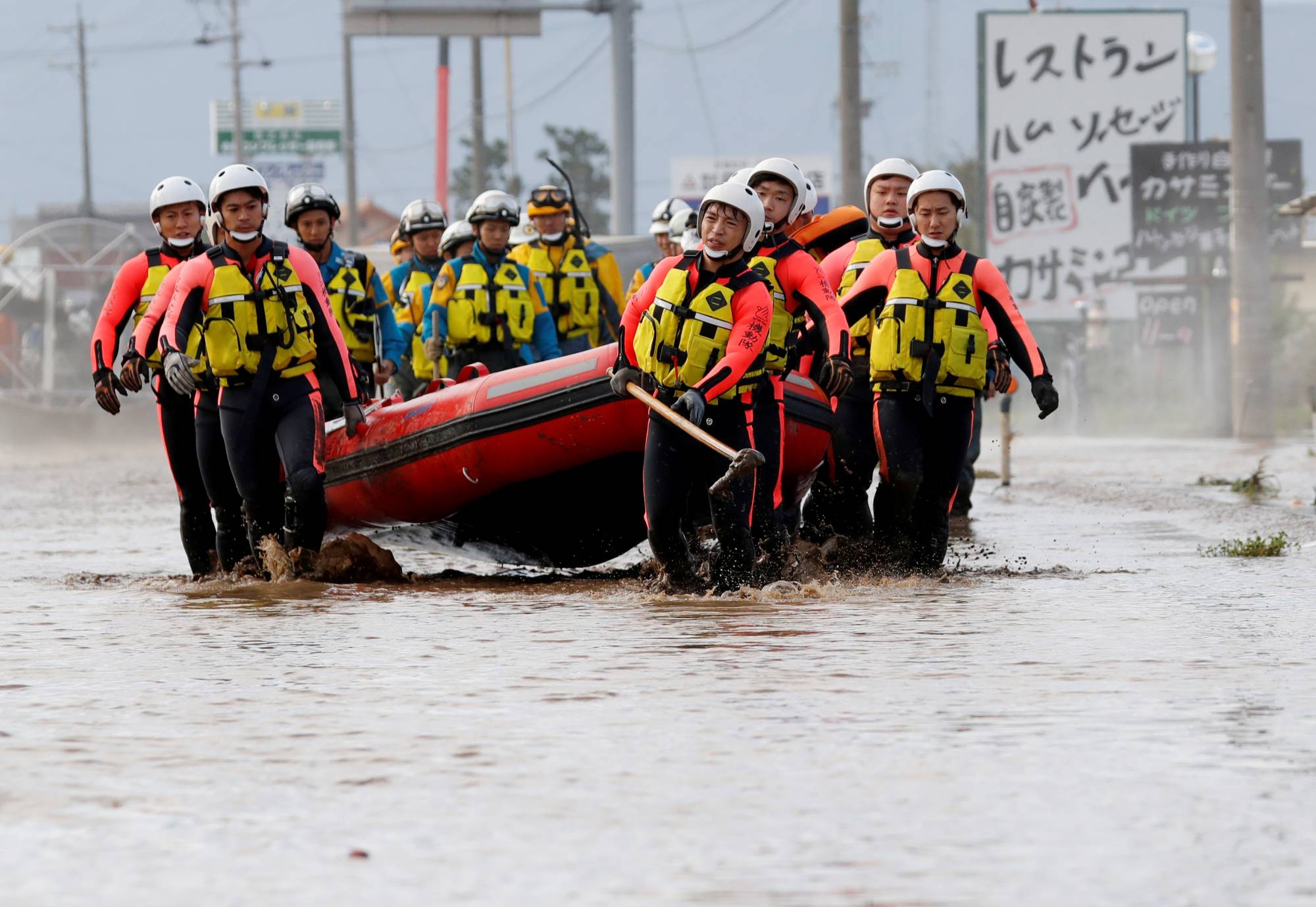The effects of human-caused climate change were responsible for roughly $4 billion of the $10 billion in insured losses resulting from Typhoon Hagibis that struck Japan in October of 2019, according to a new analysis of the storm.
Hagibis, which killed about 100 people and brought torrential rainfall to Tokyo, was one of the costliest Western Pacific typhoons on record, scientists at the University of Oxford and Imperial College London said in a study published Wednesday in the journal Climatic Change. They estimated that the effects of climate change increased the likelihood of extreme rainfall by about 67% the day the storm made landfall.
One reason is that as the atmosphere warms it can hold more moisture — meaning storms like Hagibis have the potential to drop an increasing amount of rain, the report said.

















With your current subscription plan you can comment on stories. However, before writing your first comment, please create a display name in the Profile section of your subscriber account page.